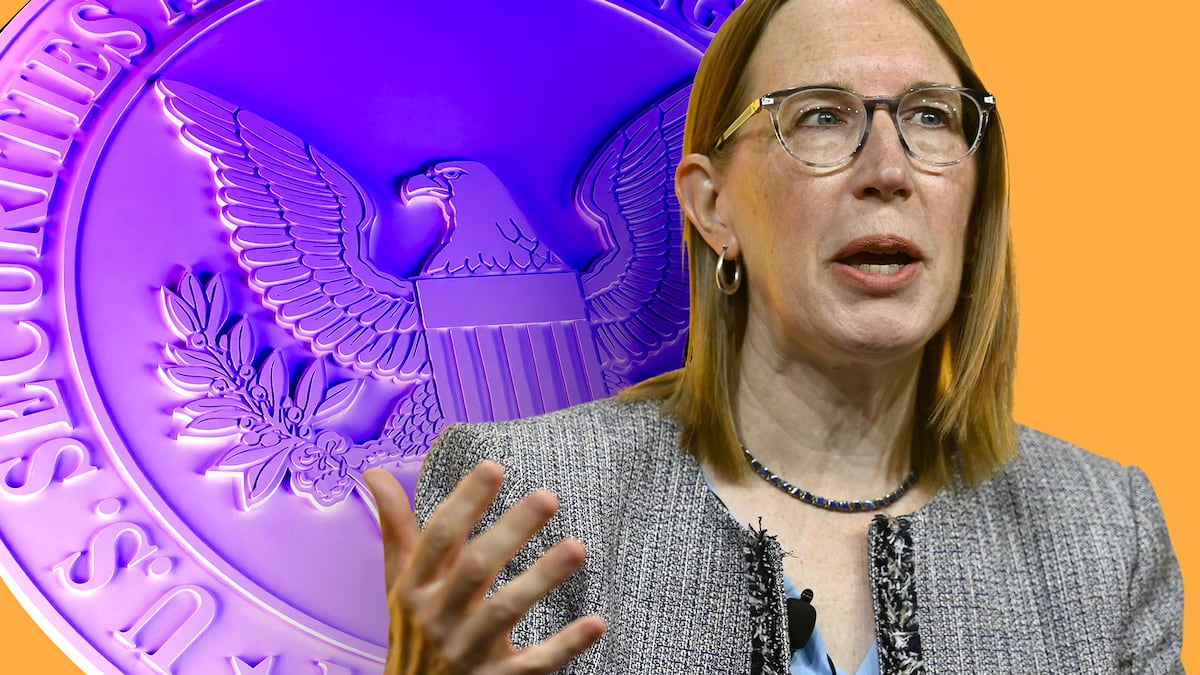- Industry groups are lobbying for a new tokenisation pilot in the US.
- Project Open would last 18 months.
- Coalition members hope this will lead to a permanent regulatory framework.
A coalition of crypto organisations is pitching the top US financial watchdog on a new pilot programme to put stocks on a public blockchain.
In a letter filed with the Securities and Exchange Commission on Tuesday, the Solana Policy Institute and Superstate, a New York tokenisation firm, proposed an 18-month trial programme to experiment with issuing and trading tokenised versions of securities.
Lowenstein Sandler LLP, a Washington law firm specialised in blockchain technology and securities regulations, and Zagreus Services LLC, the trade name for the decentralised Solana exchange Orca, are also part of the coalition.
The objective of Project Open?
Prove that the existing regulatory framework around trading securities can be made more efficient and transparent on a blockchain, the proposal reads.
Coalition members also hope the pilot will open a dialogue with the Commission as to how exactly remodelling the current financial rails on a blockchain would work.
“Project Open is a preliminary policy proposal, not a finalised or approved programme,” Leshner told DL News. “The intent is to engage regulators and industry participants in shaping a pilot framework through public feedback and iterative submissions.”
Miller Whitehouse-Levin, CEO of the newly formed Solana Policy Institute, said the coalition’s goal is to work constructively with the Commission to make markets more efficient.
Leshner added that the first cohort of issuers — the entities that will create and distribute tokenised securities during the pilot — has not been established, but said there are several issuers “excited” to join.
He said pilot members of Project Open will tokenise securities on high-performance blockchains, but did not specify any names.
$19 trillion market
The pilot push is the latest in mounting industry enthusiasm around tokenisation, the process of putting every flavour of financial asset on a blockchain.
Larry Fink, CEO of $13 trillion asset manager BlackRock, has long touted tokenisation as the future of markets.
In his annual chairman’s letter in March, he said that if Swift — the global messaging network used to transfer financial assets between banks — is the postal service, tokenisation is like email.
Robinhood CEO Vlad Tenev called tokenisation an investing revolution in January.
It’s a massive market opportunity, according to some. Ripple and the Boston Consulting Group predicted that the tokenisation niche could grow as large as $19 trillion by 2033.
Fink and Tenev cited regulatory concerns as key blockers and pointed to how the SEC would accommodate tokenised versions of stocks, such as Google, Tesla, or Facebook.
Project Open appears to be addressing precisely this.
Regulatory hurdles
The pilot programme seeks some compromises outside existing financial regulations, namely, how shares are usually issued and traded on the market.
The proposal also includes a non-exhaustive list of considerations for the pilot, such as defining network fees as tech costs rather than securities transaction-related fees.
Participating wallets would also undergo know your customer, or KYC, procedures before participating.
Superstate CEO Robert Leshner hopes the pilot, after enough trial and error, will become a permanent fixture of securities regulations.
“The SEC has the existing authority to create a permanent framework for securities to trade on blockchains, rather than on centralised exchanges or over the counter,” he told DL News.
“I view it as unlikely that Congress would have to act and create a framework before the regulatory experts can.”
Liam Kelly is a DeFi Correspondent at DL News. Got a tip? Email at liam@dlnews.com.


